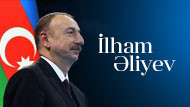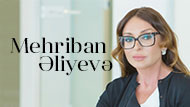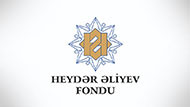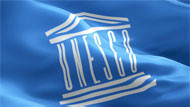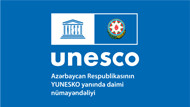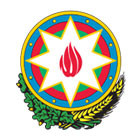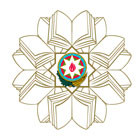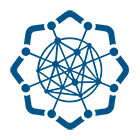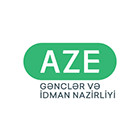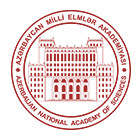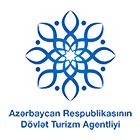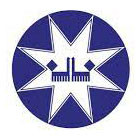2nd Capacity-Building Program for Secretaries-General and Representatives of National Commissions of African countries for UNESCO
2023-03-26Target Audience: Secretaries-General and Mid-level Representatives of National Commissions of African countries for UNESCO
Program Language: English (simultaneous translation to French)
April 1 – 13, 2023, Baku, Azerbaijan
Background
In 1984, UNESCO defined the African continent as one of its two global priorities along with gender equality. Accordingly, the Organization developed its Operational Strategy for Priority Africa, which consisted of six flagship programmes executed for the purpose of promoting and encouraging the development of African continent. The respective programme addressed the particular challenges experienced by the African continent, such as population growth, sustainable development, economic growth, social transformation and democratic governance. The Operational Strategy for Priority Africa is aligned with the objectives of Agenda 2030 for Sustainable Development that consists of the six strategic impact areas, like natural resource governance, youth and women’s empowerment, economic transformation, climate change migration and adaptation, affordable and sustainable energy and peace and security.
The primary mission of UNESCO in regard with African continent is to promote and encourage better governance, more inclusive growth and sustainable development via prioritizing the respective continent.
The capacity-building courses are means used for producing and disseminating knowledge in Africa and strengthening the capacities of government officials throughout the respective region in the areas of science, technology and innovation for the sustainable management of natural resources, economies and communities. In this context, Azerbaijan plays a significant role due to its support for realizing the targets and priorities of UNESCO regarding with the African continent. Based on the Framework Agreement on Cooperation between UNESCO and the Republic of Azerbaijan in July 2013, UNESCO/Azerbaijan Trust Fund has been established for strengthening cooperation between UNESCO and Azerbaijan via new initiatives and activities. In fact, various UNESCO projects in the field of girls’ education in Uganda, Kenya and Tanzania have been financed via the established UNESCO-Azerbaijan Trust Fund. Furthermore, this program dedicated for upgrading knowledge and capacity of representatives of National Commissions for UNESCO in African countries provides an opportunity for Azerbaijan to further expand its contributions to the efforts and activities of UNESCO regarding with Priority Africa.
In 2022, the first capacity-building program was successfully organized by National Commission of the Republic of Azerbaijan for UNESCO in cooperation with Institute for Development and Diplomacy at ADA University of Azerbaijan. During September 24 – October 8, 2022, representatives from 14 African countries participated in this program. They obtained an opportunity to upgrade their knowledge in various fields, such as UNESCO conventions, multiculturalism, cultural diplomacy, education, sustainable development, and others. Accordingly, National Commission of the Republic of Azerbaijan for UNESCO is willing to organize next capacity-building program for Secretaries-General and Mid-level representatives of UNESCO National Commissions of African countries. In this regard, the link (https://bit.ly/3HJWuWG) provides short video, which highlights key activities and field trips of the first capacity building program.
Program Objectives
National Commission of Azerbaijan for UNESCO together with ADA University will collaborate to organize the capacity-building program for the second time with the participation of the Secretary Generals / Mid-Level Staffs of UNESCO National Commissions of African countries. The purpose of the program is to contribute to the efforts and activities of UNESCO in regard with promoting sustainable development and management, and culture of peace and non-violence in the African region and to further improve cooperation and bilateral relations among National Commissions of African countries for UNESCO so that they could collaborate in the fields of education, science and culture in future.
About ADA University
ADA University started as a training institute to meet the urgent needs of the expanding diplomatic service of Azerbaijan. It has grown into a university with several schools, offering graduate and undergraduate degree programs and Executive Education for professionals in government and the business sector. Currently, ADA University is dedicated to preparing innovative global leaders and to promoting useful collaborative research on diplomacy, public and international affairs, business, humanities and sciences, information technologies and systems engineering. Currently, more than 3000 students are enrolled at ADA University both at the graduate and undergraduate levels. To learn more, please visit www.ada.edu.az.
Institute for Development and Diplomacy
Being truly mission-driven, Institute for Development and Diplomacy (IDD) was established by ADA University in 2022 to deepen engagement and outreach with expert, research, and policymaking communities, not only in Azerbaijan and other parts of the Silk Road region, but across the globe.
Modelled on the best practices of leading world-class research institution abroad, IDD will serve as the university’s hub of policy-oriented, interdisciplinary research and analysis outputs as well as be the focal point of high-level, policy-oriented conferences, briefings, and workshops.
IDD Executive Education is the major training vehicle for both civil servants and business people in the country as well as international audience. Executive Education has been an important tool for government agencies and businesses to nurture junior, midcareer and top leadership talent for 16 years. Our mission is to provide high quality and needs-based professional development and training programs for government and business based on our distinguished academic resources. Our Executive Education Programs fosters dialogue between government and business and provides excellent networking opportunities among all participants. Our alumni network consists of over 6000 professionals. Offered Programs: Advanced Foreign Service Program, Caspian Basin Studies Program, Leadership and Management Development, Communication Skills and Business Essentials.
In 2007-2022, more than 2500 diplomats and other civil servants from Azerbaijan, Europe, Asia, Africa, United States, Latin America and Caribbean Countries graduated from “Advanced Foreign Service Program”, “Caspian Basin Studies” Program and other capacity building programs for government organized by Executive Education. To learn more please visit: https://idd.az.
Program Participants
The program is designed for Secretaries-General / Mid-level Representatives of UNESCO National Commissions of African countries. They will get a unique chance to upgrade their knowledge and experience in various topics, such as multiculturalism, cultural diplomacy, inclusive education, gender equality and other fields of study that could come in handy in their profession. They will get an opportunity to communicate with distinguished professors and trainers from the ADA University faculty and guest speakers from the Ministry of Foreign Affairs of the Republic of Azerbaijan and other government agencies.
Program Structure
The program consists of different modules, covering topics such as UNESCO conventions, multiculturalism, cultural diplomacy, education, sustainable development and others. Participants in this program will also obtain information about Azerbaijan, its history, policy, and activities regarding with the restoration of all monuments based on preserving their original and authentic view. The training program will cover 2 weeks and the number of participants in the training program will be 15. The language of instruction will be English. Simultaneous translation of seminars to French will be arranged.
Eligibility Criteria
• Secretaries-General and Mid-Level Staff of National Commissions for UNESCO in African countries
Application Process
Candidates are to be nominated by relevant National Commissions of African countries for UNESCO, after a formal call for applications by National Commission of the Republic of Azerbaijan for UNESCO.
For any questions, please contact:
Mr. Sanan Aliyev, Attaché, National Commission of The Republic of Azerbaijan for UNESCO
Email: sanaliyev8@gmail.com
Tel: (+994) 12 596 93 54
All interested candidates must submit the following documents in order to be considered for program.
Required documents:
1. Application Form
2. Passport copy
3. Electronic photo
4. COVID-19 Vaccine Passport (fully vaccinated)
Application Timeline
• Application period: February 20 – March 10, 2023
• Acceptance letters: March 14, 2023
Tuition and Expenses
All program expenses are covered by the National Commission of the Republic of Azerbaijan for UNESCO: travel fair (economy class), visa fee and accommodation, meals and transportation in Baku. Other expenses occurred during the travel per-diem and any other possible expenses are not considered to be covered.
Certificates
Certificates of participation are awarded to participants who participates actively and fully in the program.
Curriculum
Multiculturalism: exploring aspects of multiculturalism, explaining various approaches towards understanding multiculturalism and cultural diversity and highlighting the importance of multiculturalism in the community. In this course, the participants will be also informed about Azerbaijani model of multiculturalism.
Intercultural dialogue: explaining the importance of open and respectful exchange of thoughts and perspectives between people belonging to different cultures and highlighting the role of Baku Process in generating a suitable platform for global intercultural dialogue.
Cultural Diplomacy and Soft Power: defining cultural diplomacy, cultural cooperation and role of states in protecting and promoting cultural diversity, values and interests and the role of international organizations in cultural diplomacy. Besides, the course will also provide an opportunity to assess soft power as behaviour of states in international relations and to identify its tools and relevance in international relations.
Preparation of the Nomination File for the World Heritage Convention: enhancing the understanding of the implementation of the World Heritage Convention in African countries, including the World Heritage nomination process.
UNESCO Conventions: explaining the role, objective and principles of UNESCO Conventions in context of African continent, such as 1970 Convention on the Means of Prohibiting and Preventing the Illicit Import, Export and Transfer of Ownership of Cultural Property, 1972 Convention concerning the Protection of the World Cultural and Natural Heritage and others.
Gender Equality: explaining the effective and efficient policies and activities developed and implemented for improving and maintaining gender equality. One of two UNESCO global priorities, gender equality will be explained as an effective means for preventing violence against women and girls in context of African continent.
Inclusive Education: highlighting the effective policies and activities implemented in the field of education to improve its accessibility for all members of a community, such as increasing participation of female students at primary and higher education.
Information and Communication Technologies Transforming Education: demonstrating the use of ICTs in education as a means for fostering social and human development.
Electronic Governance: explaining and describing the functions and benefits of E-governance, as through E-governance, government services are made available to citizens in a convenient, efficient and transparent manner.
Sustainable Development and Management: emphasizing societal conditions affecting sustainability issues and the ways of managing those social condition. The course will also cover the role of international organizations in guiding and directing countries to accomplish the targets of the 2030 Agenda for Sustainable Development.
Man, and Biosphere: explaining innovative approaches to the economic development, which are characterized by their social, cultural and ecological suitability. The experiences and lessons learned about improving the livelihood of people via safeguarding natural ecosystems and contributing to economic growth will be communicated in this course.
Field Trips: Apart from the capacity-building courses, the participants in the program will obtain an opportunity of visiting World Heritage Sites in Azerbaijan, such as Gobustan Rock Art Cultural Landscape and Walled City of Baku with Shirvanshah’s Palace and Maiden Tower.


